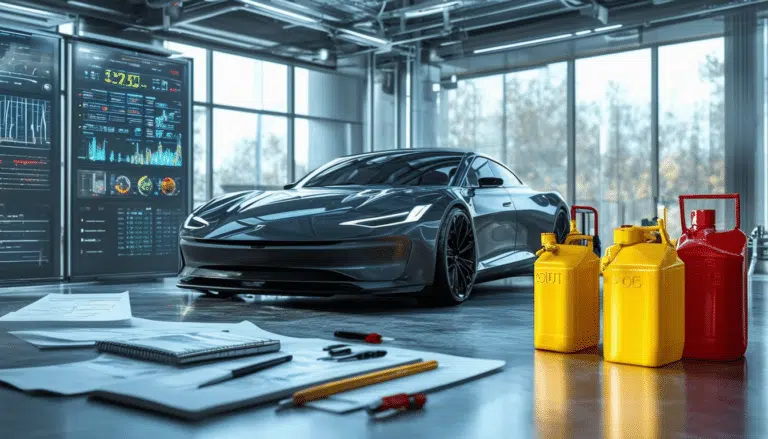BYD: The electric hope for European manufacturers?

The European automotive industry is at a critical point due to increasing pressure to comply with the stringent environmental regulations imposed by the European Union. In this context, BYD, the Chinese giant of electric vehicles, emerges as a potential solution. Its ability to provide sustainable solutions and its entry into the carbon credits trade offer a valuable alternative for European manufacturers struggling to adapt to current demands. By collaborating with BYD, these traditional brands have the opportunity to mitigate penalties and transform their fleets towards a more sustainable future.
The transition to electric mobility is a constant challenge for the European automotive industry. With the stringent emissions regulations from the European Union, many manufacturers are under pressure to adapt quickly and effectively. Enter BYD, the Chinese giant of electric vehicles, which not only offers sustainable solutions but also provides hope in the form of carbon credits. Through its collaboration with European manufacturers, BYD could be the key to maintaining competitiveness without compromising sustainability.
BYD and its breakthrough in the European market
BYD has emerged as an innovative leader in the production of electric vehicles, achieving an impressive positioning in the European market. Its capacity to manufacture accessible and sustainable electric vehicles resonates well in a continent that is urgently seeking to reduce its carbon footprint. BYD’s expansion in Europe is viewed not only as a market strategy but also as a potential solution for brands struggling to comply with environmental regulations.
Carbon credits: a strategic salvation
With the carbon credit trading system, manufacturers have the opportunity to exchange their emission reductions. This system can relieve those facing restrictions due to high emissions, helping to avoid significant penalties. BYD, along with other electric giants like Tesla, is positioned to capitalize on this market, offering credits to European manufacturers that are struggling to meet emission reduction targets.
Regulatory challenges and necessary adaptations
The strict regulations of the EU are designed to significantly reduce greenhouse gas emissions. However, the insufficient and slow adaptation of various traditional brands puts them at risk of incurring severe fines. These challenges compel brands to seek strategic alliances, such as collaborating with BYD, to ensure their continuity in the market.
The collaboration strategy: mutual benefits
Discussions and potential agreements between BYD and European manufacturers are underway, seeking to form consortia that facilitate the sale of carbon credits. This strategy not only expands BYD’s influence on the continent but also offers traditional brands the opportunity to stay competitive. Collaborations between electric and traditional manufacturers can be crucial for coexistence and competition in a rapidly evolving market.
Impact on the financial market
The anticipated participation of BYD in the carbon credit trade has provoked reactions in the financial market, affecting both competitors and investors. Opportunities for brands that manage to adapt to the European regulatory environment are growing, while those lagging behind may face adverse economic consequences.
The future of BYD in Europe
With the growing European focus on sustainability and emissions reduction, BYD’s future in this territory is promising. As the EU continues to tighten its environmental policies, the opportunities for BYD to flourish are on the rise. For some European manufacturers, BYD could represent not only a lifeline but also a vital partner in the evolution towards more environmentally friendly transportation.
To learn more about the impact of electric vehicles on the European automotive industry, visit here. Additionally, you can find details about strategies and innovations in the automotive world at this link.
The crucial role of BYD in the European automotive future
The European automotive industry is at a critical moment, facing historical challenges due to the stringent environmental regulations imposed by the European Union. Within this context, the presence of BYD in the market offers a viable alternative for many manufacturers seeking to comply with regulations and avoid costly penalties. BYD’s ability to provide efficient and accessible electric vehicles is fundamental in a sector that demands rapid and sustainable adaptation.
BYD’s entry into the carbon credits trade brings an innovative approach to the problem, providing European manufacturers the opportunity to buy credits and meet their emission reduction targets. The establishment of consortiums and strategic collaborations could not only allow European companies to maintain their competitiveness but also accelerate the transition towards a more electrified fleet. This ensures not only adaptation but also progress in a landscape increasingly dominated by green mobility.
Moreover, the relationship with BYD could signify a boost to technological innovation and the manufacturing of electric vehicles in Europe. BYD’s expertise with advanced technical solutions presents a unique opportunity for European manufacturers to gain valuable insights and enhance their own development in sustainable technologies. Local companies could benefit from these interactions by stimulating internal improvements that allow them to stand out in a competitive market.
In conclusion, BYD’s role in Europe goes beyond being a mere supplier of temporary solutions. Through alliances and credit trading, BYD positions itself as an essential catalyst in the evolution of the continent’s automotive sector towards a greener and technologically advanced future. For European manufacturers, collaboration with this Chinese entity not only represents salvation but also an invitation to redefine and strengthen their position in the age of global electrification.





